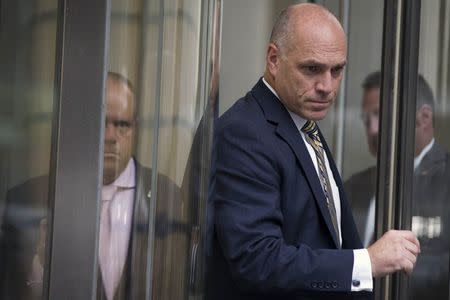New York's MTA, unions to continue talks Thursday to avert strike
By Curtis Skinner NEW YORK (Reuters) - The New York Metropolitan Transportation Authority and unions representing 5,400 workers on the Long Island Rail Road will continue talks to avert a strike that would cripple the nation's largest commuter railway, both sides said on Wednesday. The parties met in offices near Times Square after talks broke down earlier in the week, with a strike set to begin on Sunday still looming. Negotiations lasted nearly six hours before breaking up for the evening, but both sides said informal contacts would continue remotely through the night and that they would meet again in person on Thursday morning." We are not going to leave the table until we can do everything in our power to prevent a work stoppage, and that's what we're doing. We're committed," Anthony Simon, spokesman for the eight-union coalition, told reporters. A strike would leave some 300,000 daily weekday commuters from New York City's suburbs on Long Island scrambling for alternative transport. Commuters at Mineola, one of the railway's busier stops in Long Island, said they were already making contingency plans should the strike go ahead. Some asked city-dwelling relatives if they could bunk with them, while others prepared to wake hours earlier than usual to squeeze into expected heavy morning traffic on the roads. Nursing student Jannelle Williams, 26, said she rides the train about four times a week from her Mineola home to a college in downtown Brooklyn. She said her husband had agreed to drive her to the edge of the city's subway system, although heavy traffic could double her commute to 90 minutes. "I do depend on the railroad. It would really suck if they're going to strike," she said. The MTA has offered a 17 percent pay raise over seven years, limits to benefit contributions and continuing pension payments for current employees. The MTA said unionized LIRR workers are among the best-paid in the nation, with the average employee making almost $90,000 a year. The union coalition negotiating for workers has balked at a requirement that future employees would have to make steeper payments for their benefits, saying it would create an unfair two-tier system among the LIRR's staff. (Additional reporting by Jonathan Allen in Mineola, New York and Barbara Goldberg; Editing by Eric Walsh and Daniel Wallis)




